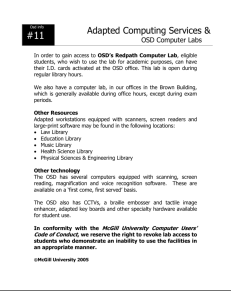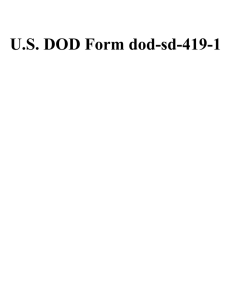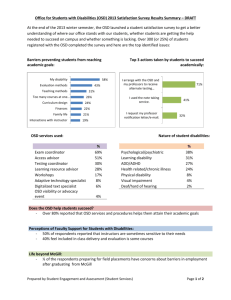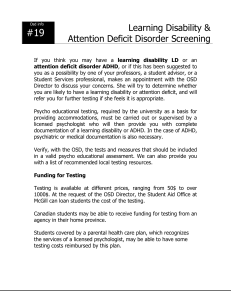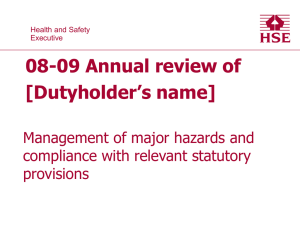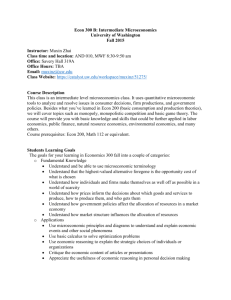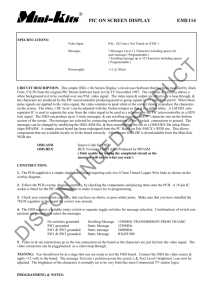Course description Textbook and study materials Grading Policy on
advertisement
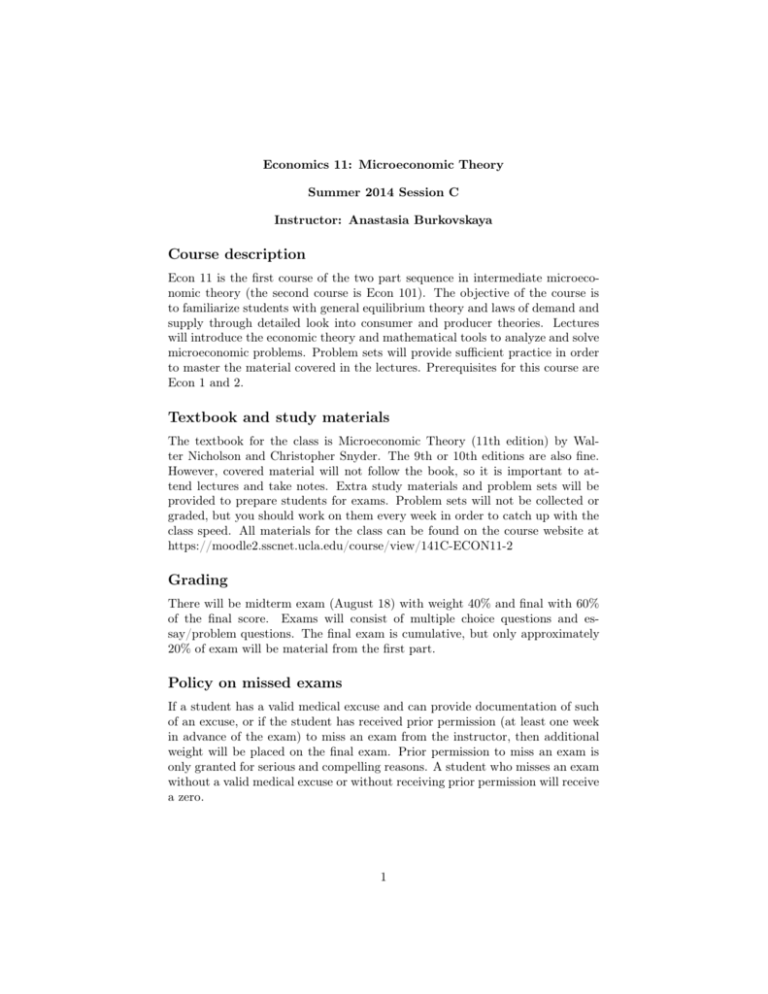
Economics 11: Microeconomic Theory Summer 2014 Session C Instructor: Anastasia Burkovskaya Course description Econ 11 is the first course of the two part sequence in intermediate microeconomic theory (the second course is Econ 101). The objective of the course is to familiarize students with general equilibrium theory and laws of demand and supply through detailed look into consumer and producer theories. Lectures will introduce the economic theory and mathematical tools to analyze and solve microeconomic problems. Problem sets will provide sufficient practice in order to master the material covered in the lectures. Prerequisites for this course are Econ 1 and 2. Textbook and study materials The textbook for the class is Microeconomic Theory (11th edition) by Walter Nicholson and Christopher Snyder. The 9th or 10th editions are also fine. However, covered material will not follow the book, so it is important to attend lectures and take notes. Extra study materials and problem sets will be provided to prepare students for exams. Problem sets will not be collected or graded, but you should work on them every week in order to catch up with the class speed. All materials for the class can be found on the course website at https://moodle2.sscnet.ucla.edu/course/view/141C-ECON11-2 Grading There will be midterm exam (August 18) with weight 40% and final with 60% of the final score. Exams will consist of multiple choice questions and essay/problem questions. The final exam is cumulative, but only approximately 20% of exam will be material from the first part. Policy on missed exams If a student has a valid medical excuse and can provide documentation of such of an excuse, or if the student has received prior permission (at least one week in advance of the exam) to miss an exam from the instructor, then additional weight will be placed on the final exam. Prior permission to miss an exam is only granted for serious and compelling reasons. A student who misses an exam without a valid medical excuse or without receiving prior permission will receive a zero. 1 Disabled students and the Office of Student Disabilities (OSD) Any student with a pre-existing illness or condition who requests special arrangements must (a) qualify under OSD rules for such special arrangements and (b) must take the exam with OSD. Any such arrangements with OSD must be made the first week of classes. The instructor must be informed of any such arrangement in the first week of classes. For additional information and the qualification conditions of the Office of Student Disabilities (OSD), please visit their website at http://www.osd.ucla.edu/Index.htm . All other students must take the exam at the scheduled time under the same time constraints. It is the responsibility of all students who request special arrangements with OSD to be familiar with all of their rules as well as the rules of this class. Academic dishonesty Any cases of cheating will be reported to the Office of the Dean of Students. For more details please refer to the Office of the Dean of Students website at http://www.studentgroups.ucla.edu/dos/ Outline of topics The following topics will be covered, with associated chapters in the Nicholson & Snyder textbook: 1. Supply and demand, consumer and producer surplus (Ch. 1) 2. Constrained maximization. Lagrange theorem. Consumer theory. (Ch. 3-5) 3. Firm theory: Production and costs. (Ch. 9, 10) 4. Firm theory: Profit maximization, perfect competition, monopoly. (Ch. 11, 12, 14) 5. General equilibrium theory. (Ch. 13) 2
